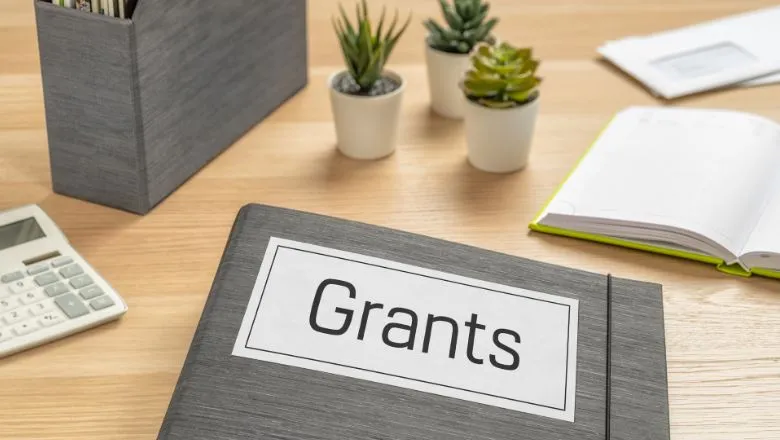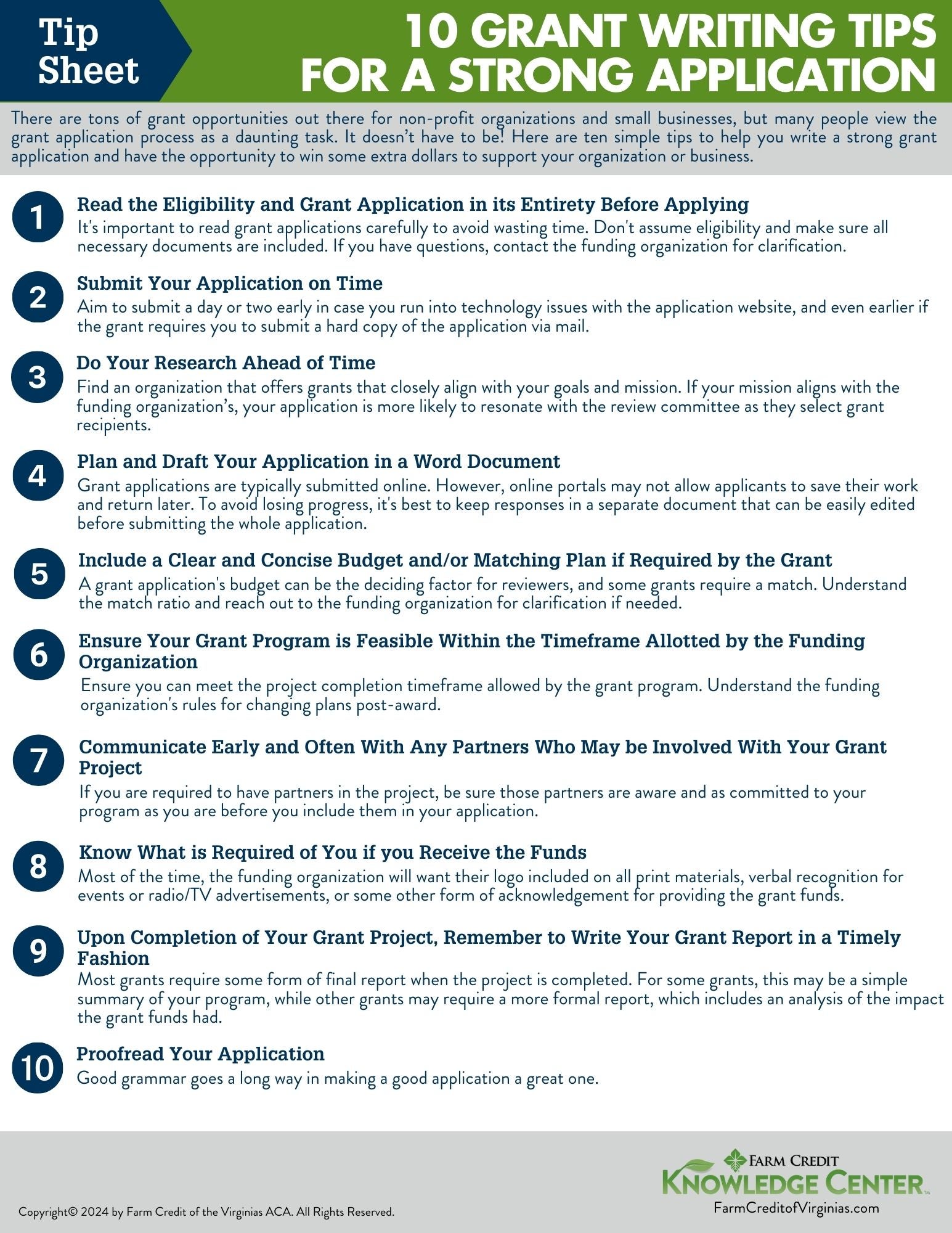10 Grant Writing Tips for a Strong Application

Financial Literacy
Young, Beginning, Small & Veteran Farmers
There are tons of grant opportunities out there for non-profit organizations and small businesses, but many people view the grant application process as a daunting task. It doesn’t have to be! Here are ten grant writing tips for a strong application to help you with the opportunity to win some extra dollars to support your organization or business.
Download the Grant Writing Tip Sheet
Read the eligibility requirements and grant application carefully and thoroughly before applying.
This may seem obvious, but it is easy to see a grant opportunity, skim the application and decide to apply, then find out down the road that you weren’t an eligible applicant or that you didn’t include a necessary document with your application. It will save you time in the long run if you read carefully from the beginning. If you have further questions, reach out to the funding organization for more clarification.
Submit your application on time.
Aim to submit a day or two early in case you run into technology issues with the application website, and even earlier if the grant requires you to submit a hard copy of the application via mail.
Do your research ahead of time.
Find an organization that offers grants that closely align with your goals and mission. If your mission aligns with the funding organization’s, your application is more likely to resonate with the review committee as they select grant recipients.
Plan and draft your application in a Word document.
Most grant programs require applicants to submit their application through an online portal. Oftentimes, these do not allow the applicant to complete one or two questions, save their work, exit and return later. Online portals also usually contain small text boxes that make it harder to edit your text. It’s safer to keep your responses in a document that you can easily access and edit before you are ready to submit the whole application.
Be sure to lay out your budget and/or matching plan (if required by the grant) clearly and concisely.
From a grant reviewer’s perspective, the budget can be a deciding factor between two otherwise even applications. The review committee wants to see their grant dollars have the greatest impact possible.
Some grants require a match, whether it’s an in-kind or a cash match, so be sure you understand that aspect and the match ratio before you write your application. Contact the funding organization if you have specific questions.
Ensure your grant program is feasible within the timeframe allotted by the funding organization.
Most grant programs allow a window of time for completing the project that was awarded. If your application is successful, make sure you can meet those parameters.
If you know your plan might change after you receive the grant funds (since awards are sometimes made months after you submit your application), be sure to have a clear understanding of the funding organization’s rules for changing those plans. Some might only require an email explanation, while others may require something more formal, such as an addendum to your application.
Communicate early and often with any partners who may be involved with your grant project.
If you are required to have partners in the project (or simply want to include partners), be sure those partners are aware and as committed to your program as you are before you include them in your application.
Know what is required of you if you receive the funds.
Most of the time, the funding organization will want its logo included on all print materials, verbal recognition for events or radio/TV advertisements, or some other form of acknowledgment for providing the grant funds.
Upon completion of your grant project, remember to write your grant report in a timely fashion.
Most grants require some form of final report when the project is completed. For some grants, this may be a simple summary of your program, while other grants may require a more formal report, which includes an analysis of the impact the grant funds had.
For example, some applications might ask for baseline levels of Key Performance Indicators (KPIs) prior to receiving grant funds, goals for how the funds might improve your KPI levels and outcome levels after the grant program is completed. You’ll want to include those outcome levels and your analysis in your final report.
Proofread your application!
Good grammar goes a long way in making a good application a great one.
Hopefully, now you’ll feel ready to hit the grant search running and confident in your ability to write a strong application! Keep in mind, Farm Credit of the Virginias offers a grant program for charitable organizations that support agriculture and enhance the quality of life in the rural communities within our footprint. The grant cycle typically opens in May of each year. Learn more by visiting our website: https://www.farmcreditofvirginias.com/ccf.

Author:

Jennifer Kiser
Marketing & Communications Specialist
Farm Credit of the Virginias